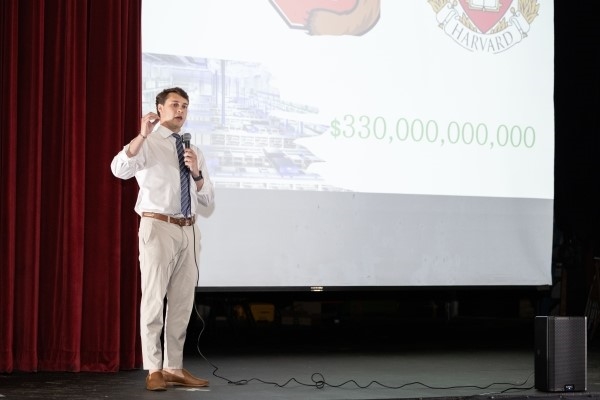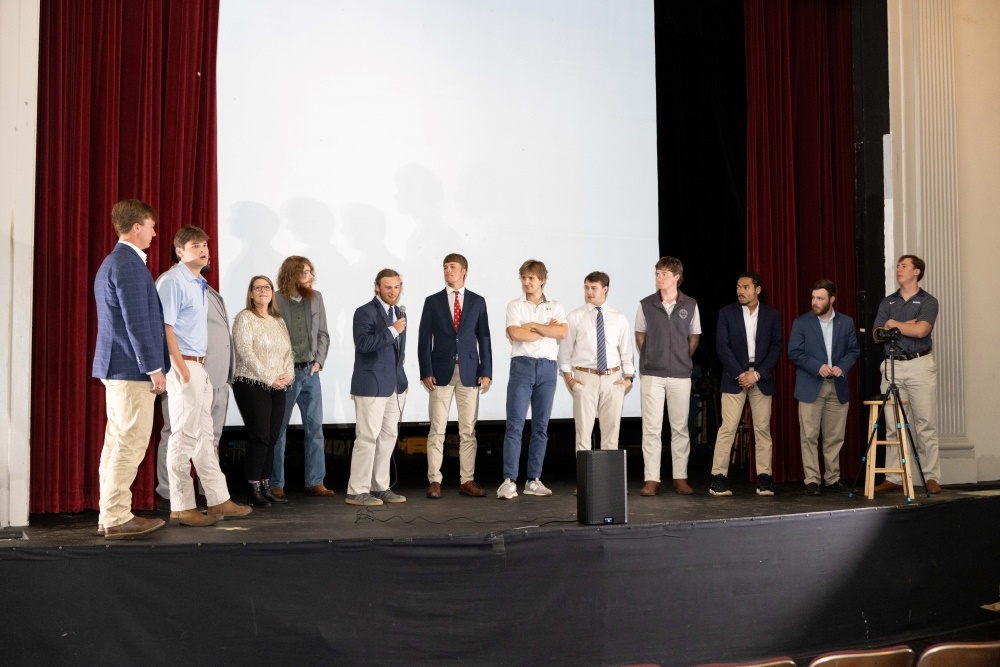 Sponsored by the Office of Undergraduate Research and Creative Activity and the Rhetoric Studio, the inaugural competition—which served as the kickoff to this year’s student research symposium—challenged students to present a research or class project in a way that clearly communicates its significance to a general audience. Inspired by a format originally developed at The University of Queensland in Australia, the competition is designed to help students strengthen their presentation and communication skills.
Sponsored by the Office of Undergraduate Research and Creative Activity and the Rhetoric Studio, the inaugural competition—which served as the kickoff to this year’s student research symposium—challenged students to present a research or class project in a way that clearly communicates its significance to a general audience. Inspired by a format originally developed at The University of Queensland in Australia, the competition is designed to help students strengthen their presentation and communication skills.
Over the past two summers, Director of Undergraduate Research and Creative Activity Michael Wolyniak and Director of the Rhetoric Studio Miranda Rouse worked together to explore effective ways to help students communicate their research. Their collaboration led to the creation of a multi-session workshop during last year’s May term, which many of the competition contestants attended. It was in this workshop that the idea for the competition first emerged.
Building on these efforts, the competition officially began with a preliminary round in March, where students presented their topics and were evaluated on a series of criteria by volunteer judges, who also provided constructive feedback. The final round, held on April 7, was judged by a panel of three. Presentations explored a diverse range of subjects from public speaking and biology to nostalgia and artificial intelligence. First place and a $500 prize went to Patxi Risinger-Chopeitia ’25 for his presentation on Hampden-Sydney and artificial intelligence. Owen Fallen ’26 earned second place and $200 for his work on loneliness and health, while Owen Williams ’26 took third place for his presentation on shipbuilding. The People’s Choice Award ended in a tie, with Joseph Taylor ’25 and Robert Clarke ’26 both receiving the honor and $100.
“The idea of having students present their research to a non-specialist audience in under three minutes with a single, static slide is unlike any other opportunity on campus,” Rouse says. “It’s one thing to work on or complete research as a student; it’s another thing to be able to communicate what the research is about, how it’s impactful, and what the student accomplished. The benefits turned out to be far more than we anticipated, as students truly saw the value of condensing their research to the highlights, explaining their topic to a non-specialist audience, and utilizing specific communication skills. I’ve heard great feedback from many students so far, with some already planning to compete again next year.”
The skills gained through research and public speaking will continue to benefit our students long after the competition—equipping them to communicate clearly, think critically, and engage thoughtfully across disciplines. Thanks to the continued efforts of the Office of Undergraduate Research and Creative Activity and the Rhetoric Studio, our students are learning to share their ideas with confidence and purpose.
